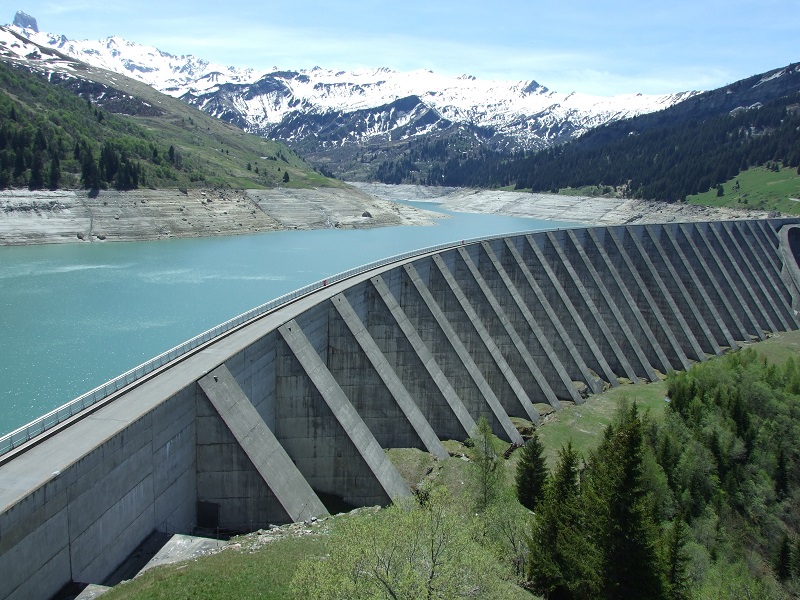Atmospher Sci & Global Chg
Research Highlights
September 2018
Effects of Water Management on Future Droughts from Atmosphere to Rivers: A Global Multi-Model Analysis
Water management may alleviate future agricultural droughts but intensify hydrological droughts.

When water is managed, more is available for human uses, but less is available to other land in the watershed. Enlarge Image.
The Science
Precipitation patterns, irrigation water, and stream flows have significant socioeconomic effects and are projected to change. Researchers at the U.S. Department of Energy's Pacific Northwest National Laboratory and Montana State University established an integrated approach to quantify the effects of human activities on the propagation of future meteorological, agricultural, and hydrological droughts at the global scale.
Their findings suggest that water management activities could reduce both the duration and intensity of agricultural droughts by a factor of about ten in most regions, while they may increase those of hydrological droughts by up to 50 percent.
The Impact
The study suggests that water management activities will fundamentally change the characteristics and evolution of future meteorological, agricultural, and hydrological droughts. Thus, to quantify the evolving characteristics of future drought events and to devise appropriate drought management strategies, researchers should not only model future climate conditions, but also the evolution of human systems.
Summary
There are direct connections among meteorological, agricultural, and hydrological droughts mediated by nonlinear hydrological processes and often affected by human influences such as water management. Researchers conducted an integrated analysis of human influence on meteorological (precipitation), agricultural (irrigation), and hydrological (stream flow) droughts at a global scale. They combined four global hydrologic models and five general circulation models of the period 2070-2099 to compare with historical data from 1970-2000, with and without water management and for two projected climate scenarios.
Overall, results indicated that water management will decrease the intensity of future agricultural droughts, especially over intensely irrigated regions. However, hydrological droughts induced by water management could be intensified when the irrigation water demand is high. Furthermore, those water-management-induced changes in hydrological droughts could be comparable to the climate-induced changes. The analysis of extreme droughts based on drought frequency analysis suggests that water management will lead to less frequent extreme agricultural droughts, but more frequent hydrological droughts globally.
Acknowledgments
Sponsors: The U.S. Department of Energy Office of Science, Biological and Environmental Research supported this research as part of the Earth and Environmental System Modeling Program.
Research Area: Climate and Earth Systems Science
Research Team: Mohamad Hejazi, Joint Global Change Research Institute, PNNL; Wenhua Wang, Tsinghua University (China) and Montana State University; Jianshi Zhao and Hui Lu, Tsinghua University; Hao Wang, Tsinghua University and China Institute of Hydropower and Water Resources; Hong-Yi Li, Montana State University; Ashok Mishra, Clemson University; and Yonas Demissie, Washington State University.
Reference: W. Wan, J. Zhao, H. Li, A. Mishra, M. Hejazi, H. Lu, Y. Demissie, and H. Wang, "A Holistic View of Water Management Impacts on Future Droughts: A Global Multi-Model Analysis." Journal of Geophysical Research: Atmospheres 123(11), 5947-5972 (2018). [DOI: 10.1029/2017JD027825]